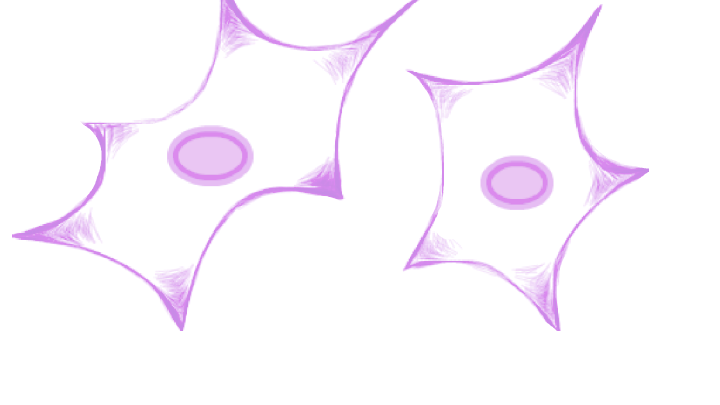Cell Senescence Entries for CCND1
- Cell Types
- Fibroblast
- Cell Lines
- HS68, WI-38
- Cancer Cell?
- No
- Method
- Overexpression
- Type of senescence
- Unclear
- Senescence Effect
- Induces
- Primary Reference
- Atadja et al. (1995) Overexpression of cyclin D1 blocks proliferation of normal diploid fibroblasts. Exp Cell Res 217(2)205-16 (PubMed)
CCND1 Gene Information
- HGNC symbol
- CCND1
- Aliases
- BCL1; D11S287E; PRAD1; U21B31
- Common name
- cyclin D1
- Entrez Id
- 595
- Description
- The protein encoded by this gene belongs to the highly conserved cyclin family, whose members are characterized by a dramatic periodicity in protein abundance throughout the cell cycle. Cyclins function as regulators of CDK kinases. Different cyclins exhibit distinct expression and degradation patterns which contribute to the temporal coordination of each mitotic event. This cyclin forms a complex with and functions as a regulatory subunit of CDK4 or CDK6, whose activity is required for cell cycle G1/S transition. This protein has been shown to interact with tumor suppressor protein Rb and the expression of this gene is regulated positively by Rb. Mutations, amplification and overexpression of this gene, which alters cell cycle progression, are observed frequently in a variety of human cancers. [provided by RefSeq, Dec 2019].
CCND1 Ontologies
- Gene Ontology
-
Process: GO:7049; cell cycle
GO:50790; regulation of catalytic activity
GO:51301; cell division
GO:6974; cellular response to DNA damage stimulus
GO:122; negative regulation of transcription by RNA polymerase II
GO:9410; response to xenobiotic stimulus
GO:10971; positive regulation of G2/M transition of mitotic cell cycle
GO:1934; positive regulation of protein phosphorylation
GO:82; G1/S transition of mitotic cell cycle
GO:79; regulation of cyclin-dependent protein serine/threonine kinase activity
GO:44772; mitotic cell cycle phase transition
GO:45737; positive regulation of cyclin-dependent protein serine/threonine kinase activity
GO:70141; response to UV-A
GO:1900087; positive regulation of G1/S transition of mitotic cell cycle
GO:31571; mitotic G1 DNA damage checkpoint signaling
GO:44321; response to leptin
GO:320; re-entry into mitotic cell cycle
GO:1889; liver development
GO:6468; protein phosphorylation
GO:7595; lactation
GO:8284; positive regulation of cell population proliferation
GO:10033; response to organic substance
GO:10039; response to iron ion
GO:10165; response to X-ray
GO:10243; response to organonitrogen compound
GO:14070; response to organic cyclic compound
GO:16055; Wnt signaling pathway
GO:30857; negative regulation of epithelial cell differentiation
GO:30968; endoplasmic reticulum unfolded protein response
GO:31100; animal organ regeneration
GO:32026; response to magnesium ion
GO:32355; response to estradiol
GO:33197; response to vitamin E
GO:33327; Leydig cell differentiation
GO:33598; mammary gland epithelial cell proliferation
GO:33601; positive regulation of mammary gland epithelial cell proliferation
GO:43627; response to estrogen
GO:45444; fat cell differentiation
GO:45471; response to ethanol
GO:48545; response to steroid hormone
GO:51384; response to glucocorticoid
GO:51412; response to corticosterone
GO:51592; response to calcium ion
GO:51726; regulation of cell cycle
GO:60749; mammary gland alveolus development
GO:71310; cellular response to organic substance
GO:97421; liver regeneration
GO:2000045; regulation of G1/S transition of mitotic cell cycle
Cellular component: GO:5634; nucleus
GO:5737; cytoplasm
GO:16020; membrane
GO:5654; nucleoplasm
GO:31965; nuclear membrane
GO:5829; cytosol
GO:17053; transcription repressor complex
GO:307; cyclin-dependent protein kinase holoenzyme complex
GO:97128; cyclin D1-CDK4 complex
GO:5923; bicellular tight junction
Hide GO termsFunction: GO:5515; protein binding
GO:19899; enzyme binding
GO:42826; histone deacetylase binding
GO:19901; protein kinase binding
GO:70064; proline-rich region binding
GO:3714; transcription corepressor activity
GO:16538; cyclin-dependent protein serine/threonine kinase regulator activity
GO:4672; protein kinase activity
GO:16301; kinase activity
GO:44877; protein-containing complex binding
Homologs of CCND1 in Model Organisms
In other databases
External links
- OMIM
- 168461
- Ensembl
- ENSG00000110092
- Entrez Gene
- 595
- UniGene
- 523852
- 1000 Genomes
- 1000 Genomes
- HPRD
- GenAtlas
- CCND1
- GeneCards
- CCND1
